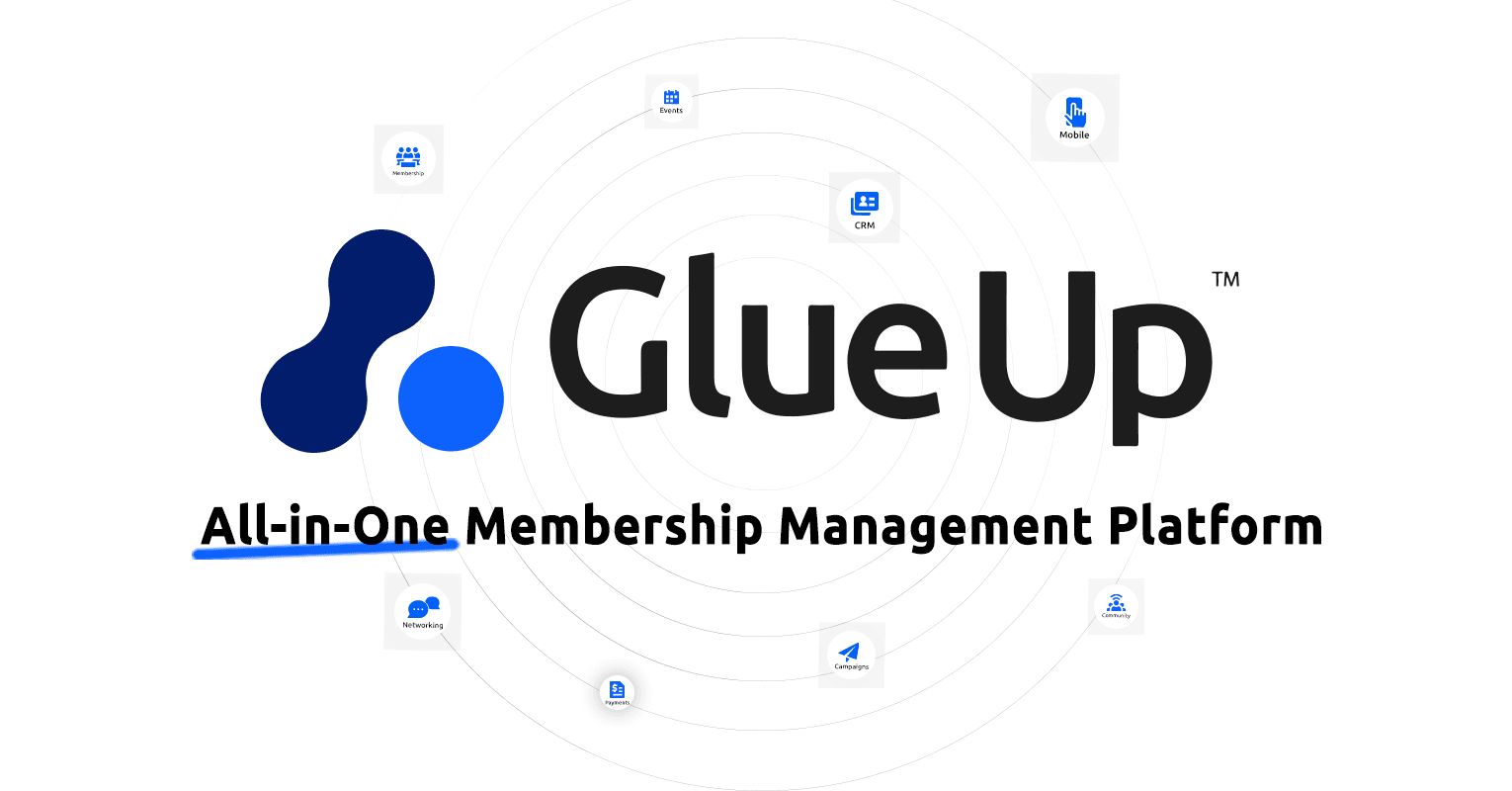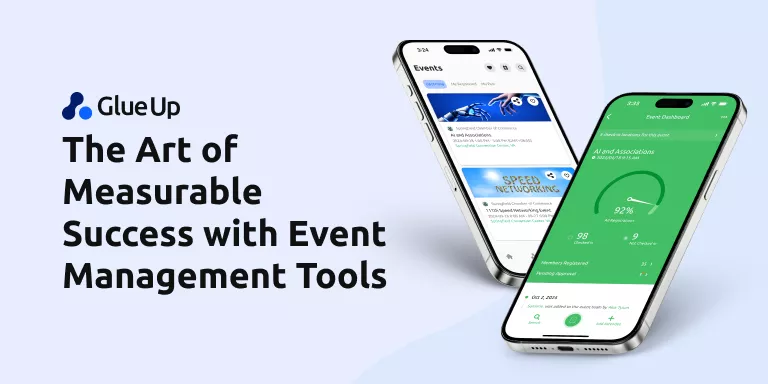
The main goal of a trade show is to connect sellers with prospective buyers. But sellers often find it challenging to incorporate all the elements of a successful event while also focusing on marketing their products. That's where a trade show management industry comes into the picture.
The trade show manager's job is to take care of the execution and logistics of exhibitions. They develop and manage comprehensive event project plans, including setup, promotion, bookings, and more. Companies spend quite a lot of resources attending trade shows, so this puts significant pressure on trade show managers to ensure growth and deliver results at every stage of the program.
Event management software can streamline these efforts, helping exhibitors and managers build brand presence, increase pipeline value, and create new business opportunities. When done right, these industry events can be an effective marketing strategy for businesses of all types and sizes.
Let's take a look at how the right software can help managers achieve their objectives.
What Is an Event Management Software?
Trade shows bring challenges that other events usually don't have to face. These include inviting the vendors, finalizing the booth operators, shortlisting the volunteers, hiring the security, and selling tickets at the right time and price. Event management software can ensure that the entire planning and exhibition happens without a glitch. It is an intuitive system that lets you control all the factors that influence a trade show.
In particular, this is a necessary tool for small businesses and trade show managers who work in a freelance capacity, as they can expertly handle management without a backup team. The software can present them with budget and expense reports, streamline communications, save contact info for all stakeholders, and more.
Furthermore, there are different tool options that help manage specific steps of successful event management. For example, you can use separate apps for event planning, guest registration, catering management, ticket booking, etc. Whether you need a dedicated solution or an all-in-one platform, event management software can help.
Benefits of Using Event Management Software
When a trade show planning team has access to the right tools and software, it becomes easier for them to manage events and satisfy attendees and exhibitors alike. Specific benefits include:
Time Savings
An event management software automates all manual processes. It allows trade show managers to program registration, process payments, and coordinate everything from one platform. Then they can easily track registered guests, pending payments, and confirmed attendees with just a few clicks. These are just a few of the ways automation can benefit event planners.
Plus, with event management software, every team member can know their assigned task and update their progress, so the trade show managers can more easily manage deadlines. The software also gives reminders, so if someone forgets to complete a task, the reminder acts as a nudge to finish every job.
Greater Engagement
Whether online or conducted in a physical setting, every event needs to be highly engaging to attract future buyers. On top of that, as the trade shows are only attended by business owners, losing customers' attention equals enormous loss.
Therefore, trade show managers leverage event management as it aids participant communication throughout the event. It also helps in analyzing the overall engagement level of the event.
Cost Reduction
It can be challenging to stay within the budget during event planning. However, event management software can ensure that every event is executed within the allocated budget.
Related to the above, the right tools reduce marketing costs because marketing tools come with event management software. It makes it easier to create posts and spread awareness on every social media platform, which saves a lot of time and money in the long term. Online promotional activities increase interest and create buzz about the event, so the event attendance also increases, raising the chances of obtaining future customers.
Trade show managers can also perform real-time analysis with event management software. They combine logic and mathematical equations to gather logistic data using this software. With the acquired data, they can make better decisions that are more cost-effective.
Easy Payments
It is messy to collect registration payments and keep track of the attendees and exhibitors manually. However, trade show managers can easily collect and manage all the charges with event management software.
According to recent statistics, 71% of customers prefer to use credit and debit cards as a primary payment option. Some event management software double-up as accounting apps and can even be connected to bank accounts to make money management easy.
The app updates all the attendees' information and trade show managers don't have to write it down. They also don't have to make a manual list as the online list can be easily printed to use. This helps to keep payments and personal information secure, which will increase confidence in the host and keep attendees coming back.
Easy Communication
Communication is the key to successful events. From early-stage preparation to the day of the event, trade show managers must maintain open communication with every department to arrange the event smoothly. Event management software is the perfect helper because it offers an accessible, all-in-one communication channel to contact everyone from the transportation company to the event attendees.
Successful marketing events are professional occasions meant to create mutually beneficial B2B and B2C connections. The right event management software gives a professional touch to every element while also gathering data, branding, and tracking attendees. This makes it easier to follow up with leads and make the most of your events.
Going Green
Finally, event management software keeps track of everything through online platforms, usually on the cloud. This diminishes the need to have everything on paper. It reduces the hassle of maintaining paperwork, meanwhile saving the planet. This is an important step towards digitizing processes for trade show managers and the event planners they work with.
Consider Hybrid Trade Shows
A trade show gathers industry leaders, decision-makers, and influencers to benefit the end-users. These events are a good opportunity for companies to broadcast their services or products to gain sponsors to strengthen their hold in the market.
In the past, trade show events were only hosted in physical settings—that is, until the pandemic struck. These days, businesses have gotten quite comfortable with the hybrid trade show model where the event is hosted online and in-person simultaneously. Trade show management companies can use event management software to easily plan and manage online, in-person, and hybrid trade show events.
A hybrid trade show event is set up live in physical settings. Potential sponsors fly in from different places to see the new products and services. However, the whole affair is also shared through a live broadcast to other owners that couldn't come. They become part of the trade show and participate like physically present guests.
Inviting, hosting, and combining both forums is easy and quick with event management software. So, as a trade show management company, event management software is an investment worth making.
Wrapping Up
As a trade show management company, you have a significant role in the success of the business's event strategy. Event management software can help you quickly achieve all event goals with less time and effort - whether online, in-person or a mix of both. It is better to work smart and use the latest apps and software for more efficient and engaging results.
Author Bio
Nahla Davies is a software developer and tech writer. Before devoting her work full time to technical writing, she managed – among other intriguing things – to serve as a lead programmer at an Inc. 5,000 experiential branding organization whose clients include Samsung, Time Warner, Netflix, and Sony.



